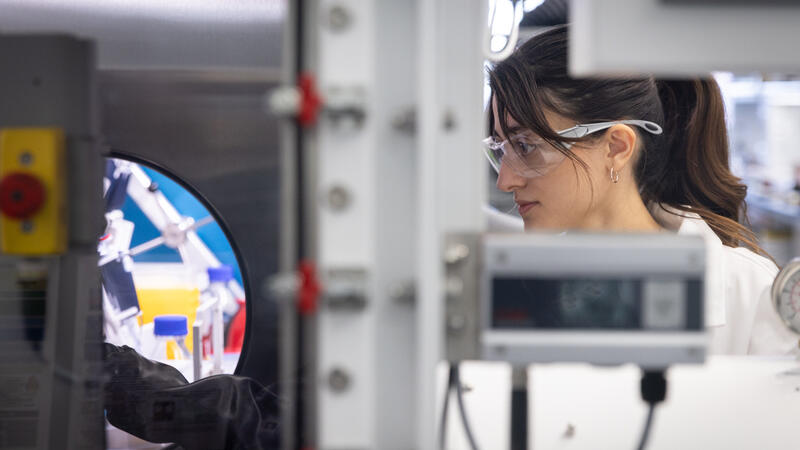News
Autonomous lab accelerates discoveries to harness power of microbes
Prolific biofuels researcher James Dumesic has been named the winner of the 2019 Eni Energy Transition Award.
Each year, the Great Lakes Bioenergy Research Center (GLBRC) hosts a group of undergraduate students to participate in the Research Experience for Undergraduates (REU) program, designed to immerse students in research. This summer, 11 undergraduate students joined laboratories at Michigan State University and the University of Wisconsin–Madison.
Michigan State University (MSU) researcher Alexandra Kravchenko and several of her colleagues recently discovered a new mechanism determining how carbon is stored in soils that could improve the climate resilience of cropping systems and also reduce their carbon footprints.
With a new method to synthesize a popular pain-relieving medication from plants rather than fossil fuels, researchers at the Great Lakes Bioenergy Research Center have found a way to relieve two headaches at once.
Switchgrass is attractive as a potential bioenergy crop because it can grow for years without having to be replanted. Requiring less fertilizer than typical annual crops like corn, switchgrass can keep more nitrogen, phosphorus and carbon in the soil and out of our air and waterways. But, unlike corn, breeding of switchgrass for optimal traits is still in its early stages.
The April 2019 issue of Current Opinion in Biotechnology features a series of papers focused on plant biotechnology and lignin bioengineering, including several familiar faces at Great Lakes Bioenergy.
Developing renewable, plant-based alternatives for petroleum-derived chemicals is a major piece of the effort to transition away from a fossil-fuel based economy toward a more sustainable and environmentally friendly bio-based economy.





